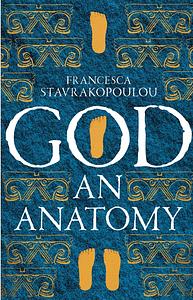Take a photo of a barcode or cover
challenging
informative
slow-paced
informative
reflective
medium-paced
challenging
informative
slow-paced
challenging
informative
reflective
medium-paced
adventurous
funny
informative
reflective
medium-paced
This was great, but unusual, and probably confusing to readers who didn't understand what the erudite Stavrakapoulou was trying to do. She wrote from an 'insider's' perspective, meaning that she was less interested in what was objectively true or false or possible, but rather described what it would be like to truly believe certain claims about god's corporeality. There were a few claims that she might have stretched beyond application, and occasionally it jumped around quite a bit chronologically as she was more focused on individual body parts than the chronological development of perspectives.
When discussing the evolution of dualistic thinking and the afterlife in Judaism she failed to mention Zoroastrianism. She seemed so thorough everywhere, so I can't imagine why the oversight, unless she knows something I don't.
I think this book could be shocking to modern theists who have always believed god's anthropomorphisms were simply allegorical. But I think Stavrakapoulou is pretty accurate in the divine worldview she elucidates, which is laid out in a stark autopsy in the epilogue.
When discussing the evolution of dualistic thinking and the afterlife in Judaism she failed to mention Zoroastrianism. She seemed so thorough everywhere, so I can't imagine why the oversight, unless she knows something I don't.
I think this book could be shocking to modern theists who have always believed god's anthropomorphisms were simply allegorical. But I think Stavrakapoulou is pretty accurate in the divine worldview she elucidates, which is laid out in a stark autopsy in the epilogue.
challenging
informative
reflective
medium-paced
I enjoyed this a great deal, though I'm sure I misunderstood a good portion. It's an academic piece and a very interesting exploration of God's body historically and biblically to (comparatively) recent interpretations of God as not having a body at all.
challenging
informative
reflective
slow-paced
challenging
informative
reflective
medium-paced
This is a really evocative history of Yahweh, drawing on the Bible, NE texts, and later Christian and Western depictions of the Bible, using the lens of the body. Stavrakopolou focuses on different body parts in each section, moving back and forth between the different bodies of evidence. I think the kind of general thesis--Yahweh was originally a Near Eastern god who was part of a pantheon and had a body--is obvious enough, but as someone semi-familiar with biblical texts, I found Stavrakopolou's readings persuasive and interesting; she has a knack for illuminating familiar texts in different ways and finding the hidden archaicisms of the Bible that lie behind the redactional layers, like the text on the birth of Abel, which clearly says Yahweh was his father, but has been read in a different manner for centuries. Sometimes, the texts stray a bit too far away from the NE, and I think that's kind of a weakness; as you get into medieval and later christianity, it's not so clear the degree to which those texts are part of the same conversation. But overall, it was good, persuasive, and accessible.



